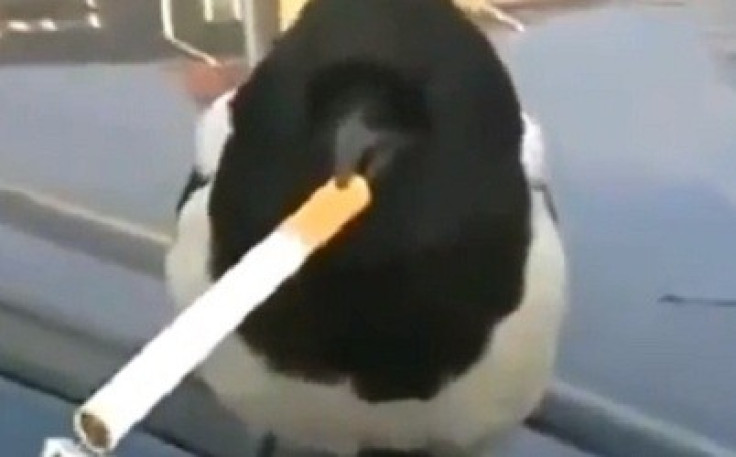City Birds Build Homes with Cigarette Butts

City birds build their nests from cigarette butts because the poisonous compounds in such readily available street litter help keep harmful parasites away, ornithologists believe.
Scientists have documented cases of birds altering their behavior in order to cope with parasites that infest their nests and endanger their young. Some adult birds bring in fresh plants containing compounds that repel parasites.
Researchers at the National Autonomous University of Mexico have revealed that some birds living in cities have found a use for dog-ends in their fight against parasites.
Nicotine is a known deterrent against insects and bugs. The scientists believe that urbanisation has led the birds to adapt to new resources available to them.
The study, published in Biology Letters, says that birds incorporate nicotine-soaked cigarette ends because parasites are repelled by the substance.
Paige Warren of the University of Massachusetts told New Scientist: "Much of the work on urban environments has focused on the negative impacts of human activities on birds and other animals. But there are also many resources that humans provide for animals in the city."
Researchers looked at the nests of two bird species common in Mexico and measured the amount of cigarette butt cellulose, which contain deposits of nicotine from smoking, in them. The more nicotine-holding cellulose, the fewer parasites there were in the nest, researchers found.
According to the scientists, this behavior fits in with the idea that the birds are using the butts as "self-medication" to preserve their health by deterring parasites. More research was necessary to prove that the birds were deliberately collecting cigarette ends for this reason.
The study suggests conducting a controlled test to see if birds are more attracted to the butts of smoked cigarette butts over unsmoked.
Timothy Mousseau, an ecologist at the University of South Carolina in Columbia, told the journal Nature: "It really makes me wonder: might these birds show a preference for cigarette brands high in nicotine? If they did, that might suggest this behaviour has truly evolved as an adaptive response to challenges from parasites."
The researchers noted that the butts could also as thermal insulator rather than for their repellent properties.
© Copyright IBTimes 2024. All rights reserved.






